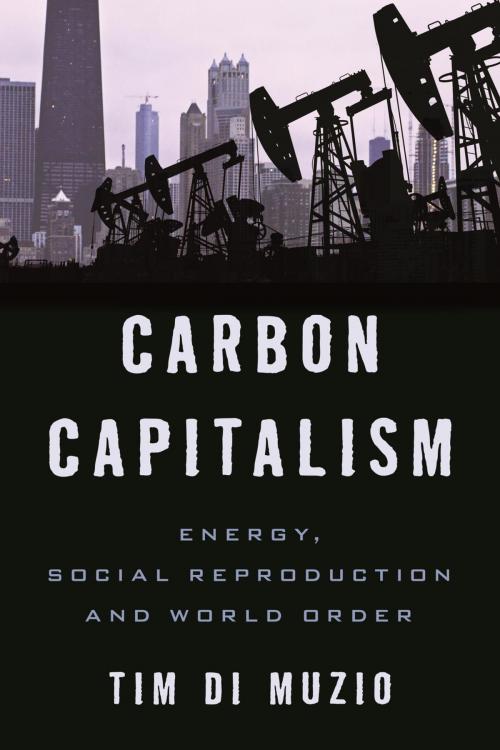Carbon Capitalism
Energy, Social Reproduction and World Order
Nonfiction, Social & Cultural Studies, Political Science, Politics, Economic Conditions, Government, Public Policy, International, International Relations| Author: | Tim Di Muzio | ISBN: | 9781783480999 |
| Publisher: | Rowman & Littlefield International | Publication: | August 31, 2015 |
| Imprint: | Rowman & Littlefield International | Language: | English |
| Author: | Tim Di Muzio |
| ISBN: | 9781783480999 |
| Publisher: | Rowman & Littlefield International |
| Publication: | August 31, 2015 |
| Imprint: | Rowman & Littlefield International |
| Language: | English |
Modern civilization and the social reproduction of capitalism are bound inextricably with fossil fuel consumption. But as carbon energy resources become scarcer, what implications will this have for energy-intensive modes of life? Can renewable energy sustain high levels of accumulation?? Or will we witness the end of existing capitalist economies?
This book provides an innovative and timely study that mobilizes a new theory of capitalism to explain the rise and fall of petro-market civilization. Di Muzio investigates how theorists of political economy have largely taken energy for granted and illuminates how the exploitation of fossil fuels increased the universalization and magnitude of capital accumulation. He then examines the likelihood of renewable resources providing a feasible alternative and asks whether they can beat peak oil prices to sustain food production, health care, science and democracy.
Using the capital as power framework, this book considers the unevenly experienced consequences of monetizing fossil fuels for people and the planet.
Modern civilization and the social reproduction of capitalism are bound inextricably with fossil fuel consumption. But as carbon energy resources become scarcer, what implications will this have for energy-intensive modes of life? Can renewable energy sustain high levels of accumulation?? Or will we witness the end of existing capitalist economies?
This book provides an innovative and timely study that mobilizes a new theory of capitalism to explain the rise and fall of petro-market civilization. Di Muzio investigates how theorists of political economy have largely taken energy for granted and illuminates how the exploitation of fossil fuels increased the universalization and magnitude of capital accumulation. He then examines the likelihood of renewable resources providing a feasible alternative and asks whether they can beat peak oil prices to sustain food production, health care, science and democracy.
Using the capital as power framework, this book considers the unevenly experienced consequences of monetizing fossil fuels for people and the planet.















